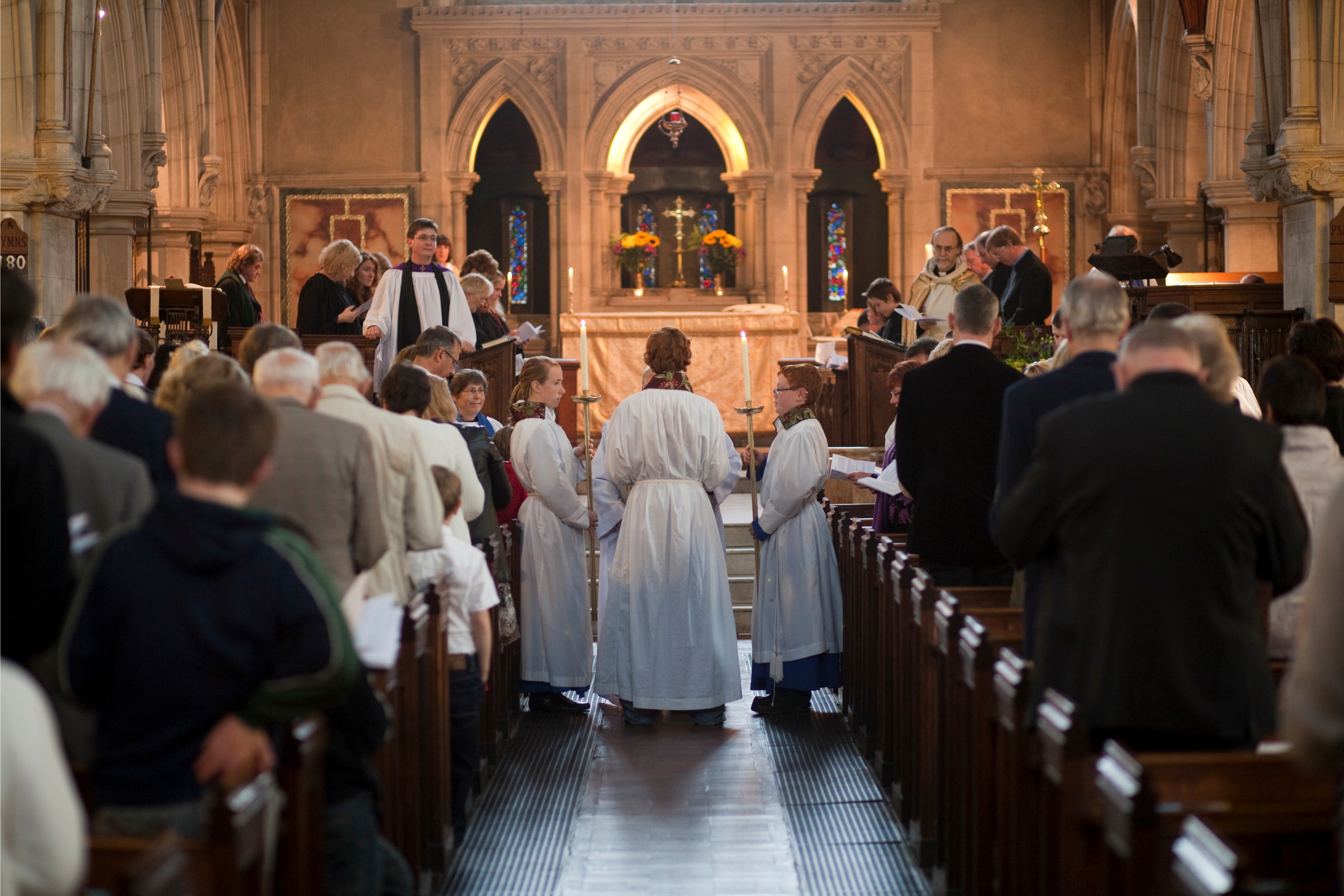
The following explanation of some liturgical reform at All Saints Ealing was given before the start of the Eucharist on Pentecost Sunday 2013. For pastoral reasons the actual details of the changes are ommitted. But do go along to All Saints Ealing to experience the Eucharist, 10:30 am on Sunday mornings.
There is an ancient Latin dictum lex orandi lex credendi. Roughly translated it means the law of prayer is the law of belief. It is often referenced to make plain the principle that how we worship shapes what we believe. Our liturgies, creeds, hymns and doctrines are not an accident of history. They are the outworking of a careful and prayerful tradition which has sought to illuminate the truth of the Christian faith through the beauty and transforming power of words, symbols and rituals in worship.
However, there are two dangers with sacramental worship. The first is that we can assume that the process of discovery and creativity has come to an end. We are particularly sure that the Victorians really finished-off the job. This is, of course, a complete betrayal of the scriptures which remind us that God is constantly at work transforming his world and us. Our worship should never be held hostage to the grave misconception that the status quo is somehow a divine edict or the perfection of the Christian tradition. A cursory survey of church history should disabuse us of our desire to blindly cling to the familiar. One generation's revolution is another's straitjacket.
The second very serious danger of sacramental worship is the risk of apathy or liturgical spectatorship. This may be defined as the habit of coming to divine worship as consumers rather than participants. Worshippers caught in this attitude expect that they will mostly receive or remain passive during Sunday service. The liturgy is reduced to a performance and an empty ritual, the very thing that sparks the wrath of God against the ancient kingdom of Israel.
The word liturgy means the work of the people. When we come to Eucharist our first priority should be to offer ourselves into the act of worship. There can be no true worship, no transforming encounter with God if our hearts, minds and bodies remain disengaged from the collective work of praising God. Aidan Kavanagh expresses the point very effectively in his book the Elements of Rite "The liturgy...is not a plaything for the faithful assembly but its sustained summons home to God."
The clergy, choir and other attendants are here to serve you in worship and you are here to serve them. Authentic sacramental worship is a three-way conversation between the assembly, the leaders and the divine. It is predicated on a willingness to offer ourselves anew at every service, to make the sacrifice of time and energy to God within the ritual that reunites us to the great sacrifice of our saviour.
The culpability for these two dangers, stale ritual and apathetic worship, rest with both the clergy and the congregation. We need to be vigilant and faithful together so that we don’t fall into patterns of worship that result in the extremes of bland familiarity or confusing messyness.
Today is Pentecost, the birthday of the Church and the festival in which we recall the coming of the Holy Spirit. As we will shortly hear, the consequence of the radical outpouring of God's love is powerful, authentic, unifying and transforming worship. Language, culture and location become irrelevant as the disciples and those around them are caught up in a vivid experience of God. Openness, willingness and enthusiastic participation characterise the encounter that would ignite the spread of Christianity around the world.
Today also marks the first of my final 10 Sundays with you. I think it is fitting to introduce some adjustments to the way we worship in order to enable us to offer ourselves to God in a more unified and intentional way. Through our actions, words and songs we need to be reminded that the worshipping assembly is the primary minister of God’s transforming grace in the Eucharist.
Authentic and transforming worship is not about perfection or performance. It isn't an X Factor style singing competition. Our willingness to offer service and our attentiveness to the Spirit and one another should be our only concerns. As Jesus says to his disciples in the great commission "Do not be afraid, I am with you until the end of the age." I hope that these few changes will help us to grow in even greater confidence as the worshipping people of God here at All Saints.